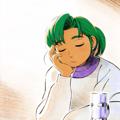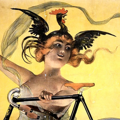iddcutie reviewed Wind-up Bird Chronicle, The by Haruki Murakami
I just like it, okay?
4 stars
I'm not entirely sure what keeps drawing me back to Murakami's work. I think perhaps its how he blends mundanity with the surreal, and his unique prose (or at least, what uniqueness is able to be translated.) But even those reasons seem lacking. There's something more ineffable at play as to why I like his work, and that is to say, I just like it. Or at least, right now, I do not have the words to describe my pull towards his work, and why I loved this book especially, but maybe I can say that it's akin to Toru Okada's mysterious pull toward the well. Or really, I just need to let The Wind Up Bird Chronicle marinate my brain for a bit, reread it a few times, before I can give it a proper review.
I'm not entirely sure what keeps drawing me back to Murakami's work. I think perhaps its how he blends mundanity with the surreal, and his unique prose (or at least, what uniqueness is able to be translated.) But even those reasons seem lacking. There's something more ineffable at play as to why I like his work, and that is to say, I just like it. Or at least, right now, I do not have the words to describe my pull towards his work, and why I loved this book especially, but maybe I can say that it's akin to Toru Okada's mysterious pull toward the well. Or really, I just need to let The Wind Up Bird Chronicle marinate my brain for a bit, reread it a few times, before I can give it a proper review.





